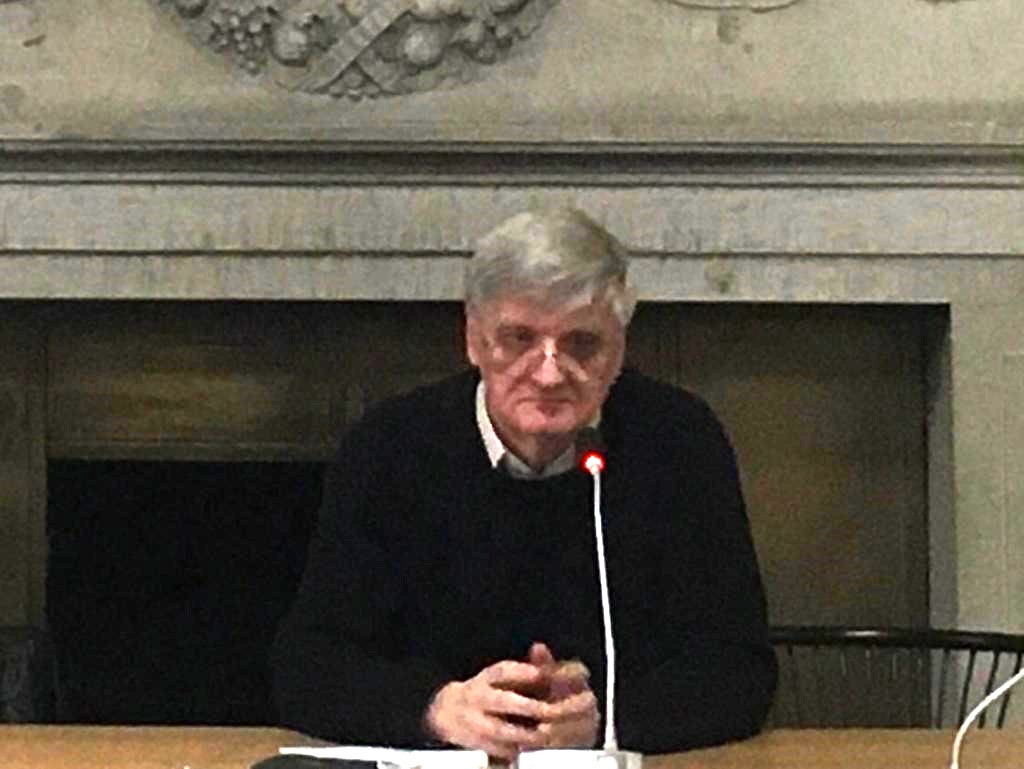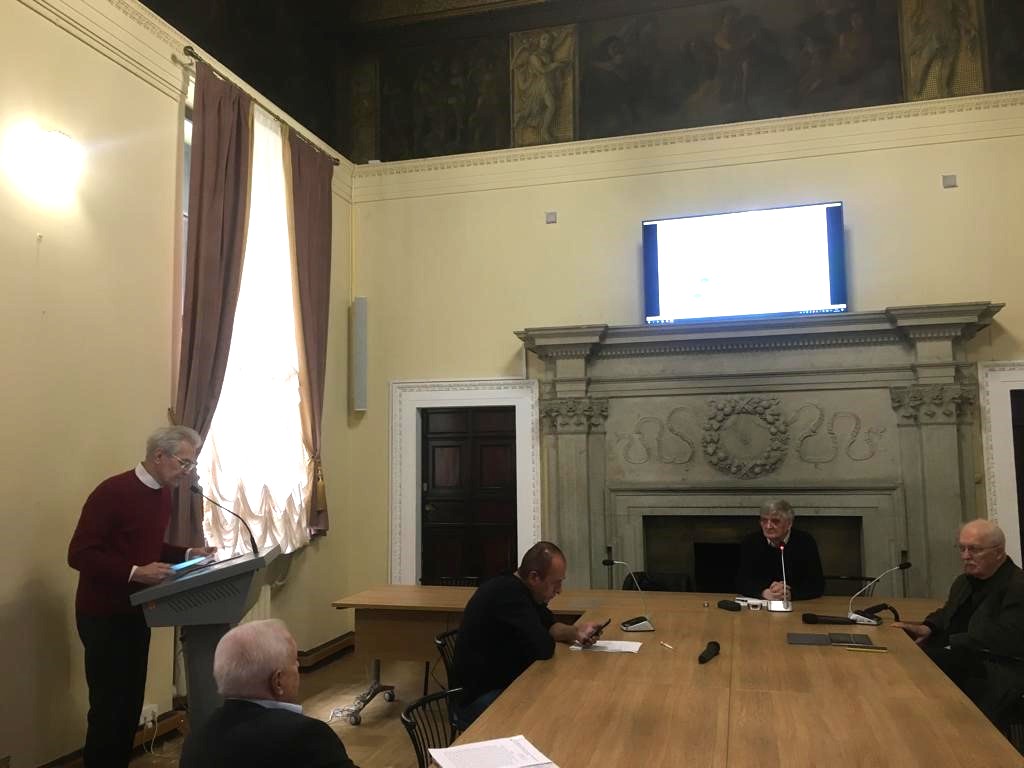18 April, 2023 The Scientific Seminar "Post-coloniality and World Civilizational Transit"
THE MINISTRY OF SCIENCE AND HIGHER EDUCATION
OF THE RUSSIAN FEDERATION
RUSSIAN ACADEMY OF SCIENCES
The Department for Global Problems and International Relations
INSTITUTE FOR AFRICAN STUDIES
|
30/1 ул. Спиридоновка, Москва, 123001 |
 |
30/1 Spiridonovka str., Moscow, 123001 |
On April 18, 2023, under the auspices of the Commission on Social and Cultural Problems of Globalization of the Scientific Council of the Russian Academy of Sciences "History of World Culture", a meeting of the scientific seminar of the Commission "Post-coloniality and World civilizational transit" was held at the Institute for African Studies of the Russian Academy of Sciences. The theme of the last meeting: "Post-coloniality and civilizational transit: horizon lines."
The chairman of the Commission on Social and Cultural Problems of Globalization, Head of the North-South Group Alexander Neklessa, Center for Civilizational and Regional Studies, IAF RAS, who analyzed the aspects and trends of Postcoloniality as an interdisciplinary area of research and one of the “big challenges” of our time.

Postcoloniality is a complex phenomenon, an essential characteristic of the universe emerging on the planet, given that coloniality as a phenomenon and problem continues to exist in the postcolonial world, however, the struggle for political sovereignty is supplemented and replaced by the practice of decoloniality - the sociocultural decolonization of people and communities. Postcoloniality is also positioned as a complex direction of intellectual search, an academic theory, and a critical concept that claims to rethink the heritage of civilization, a revision of the Eurocentric discourse in the field of socio-humanitarian knowledge. And within the framework of discussions about the transit experienced, it is an important reference point for social movements. The events of the New and Modern times, with all the tragic breaks in modern history, form a vector of aspiration for the universal emancipation of people and the sovereignization of peoples: democratization - decolonization - desegregation - legitimation of otherness - affirmation of the dignity of the individual. Post-coloniality produces cultural diversity at the level of individuals and the social groups and communities they form, a kaleidoscopic historical perspective emerges, and alternative scenarios for the future world order are born. Today, turning former burdens into a resource, the former inhabitants of the third world are mastering the planet and, acquiring transcontinental subjectivity (Afropolitism, decopolitism, migrity, etc.), seizing the strategic initiative. In line with the civilizational transit, “dark-skinned cosmopolitanism” outgrows its original proportions and demonstrates the potential of an ambitious “planetary-scale project” (Ashel Mbembe). The speaker answered the questions of the seminar participants.
Vladimir Ivanovich Belov, Director of the Center for African Studies of the Peoples' Friendship University of Russia, Professor Belov made a presentation on "Post-coloniality and interregionalism: the problem of transit in international relations." The report caused a lively discussion. In light of the problems outlined in the report by Belov V.I., Alexander Alekseevich Tkachenko, head of the Center for the Study of the Countries of North Africa and the Horn of Africa of the IAFR RAS, drew attention to the fact that in the recent period in the international media, in political circles, the topic of the Iranian nuclear program (INP ). It is argued that Iran is literally on the verge of readiness to cross the "red line" and produce weapons-grade plutonium. In Israel, in this regard, information was "leaked" about the likelihood of a strike on Iran's nuclear facilities, and the State Department is allegedly making efforts to prevent the attack. There have been reports that the European Union is trying to prevent the conflict from going into a hot phase and to preserve the path of a compromise settlement. In modern international relations, the threat of a global conflict has sharply increased, the trigger of which may be the situation around the INP or the Russian-Ukrainian conflict. If this happens, what will be the fate of integration projects, including "Shiite" or "Shiite-Sunni" projects? It should be added that in Iran itself, the internal political conflict between individual archaic socio-political and state institutions and an unprecedented youth protest movement has intensified, which can develop into a third wave of “color” revolutions in the Middle East, coupled with the internal Sudanese conflict, already qualified as the harbinger of civil war.

Timur Radikovich Khairullin, Senior Research Fellow of the Center for Civilizational and Regional Studies, Institute for African Studies of the Russian Academy of Sciences, took part in the seminar in absentia, presenting a report “Post-coloniality in the Arab world after the “Arab Spring”. And Rakhimbek Sarkhadbekovich Bobokhonov, a senior researcher at the Center for Critical Research of the Institute of Agrarian and African Studies of the Russian Academy of Sciences, outlined his vision of the horizons of Postcoloniality in the report “Postcolonial Transit and Neocolonialism”. The speakers answered the questions of the participants and guests of the seminar.
In the final discussion, presentations were made by the head of the Center for Civilizational and Regional Studies Igor Vasilievich Sledzevsky, the head of the Center for the Study of North Africa and the Horn of Africa Alexander Alekseevich Tkachenko, and the junior researcher of the Center for Civilizational and Regional Studies Natalia Alexandrovna Voronina.







